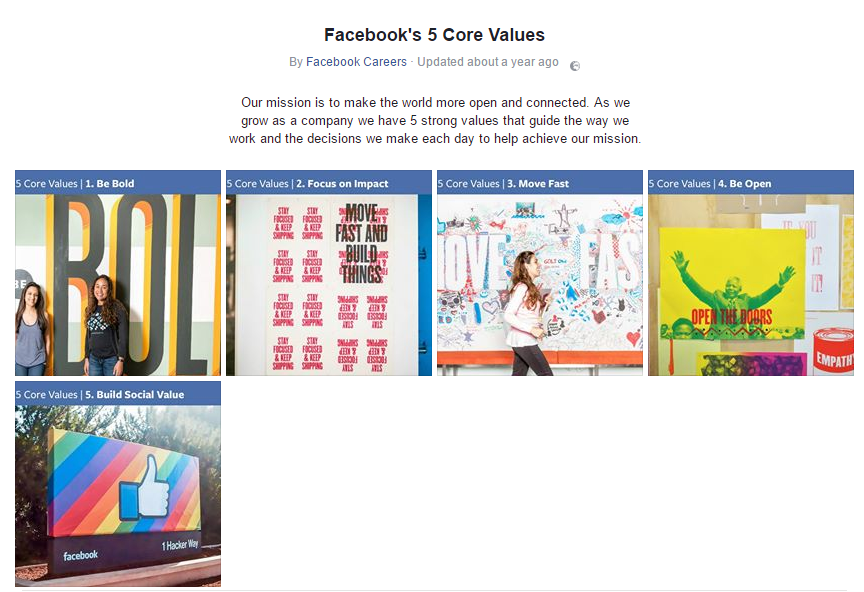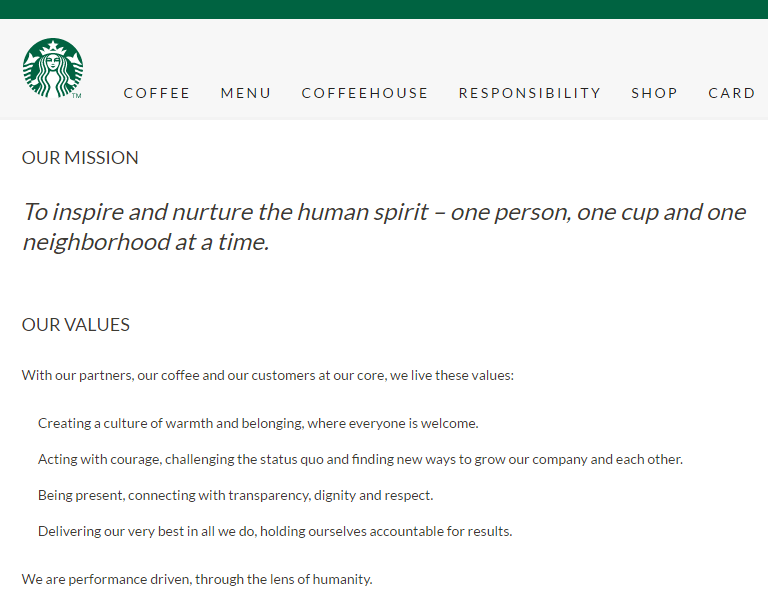Last week, Mark Zuckerberg published his ‘Building Global Community’ open letter – or, as the BBC called it – his “manifesto to re-boot globalisation”. At first glance, it may seem hypocritical for the man who says he isn’t interested in being a politician to jump feet first into one of the biggest political issues out there, but is it?
Politics and business really aren’t that different
When business leaders brainstorm what their brand values will be, they shouldn’t just focus on what sounds good, but what they are willing to work to achieve.
Facebook’s CEO is often outspoken on social issues, but he’s supposed to be. His company’s values promise boldness, building social value, transparency, action and creating maximum impact. If Facebook said and did nothing in response to the social and political challenges of today, we would know that it’s so called ‘core values’ were empty promises.
Business leaders can’t escape the values they created, they have a responsibility to act on them even if their actions will have nowhere near the impact of Facebook’s.
“Hold on, I’m in business, not politics!”
Don’t panic. I’m not arguing that every SME owner in the land needs to polish up their oratory and start going door-to-door.
Brands – and their leaders – don’t need to choose a political ideology to make a difference. They need to identify the values that matter to the business – values that everyone in the business supports – and commit to act on them.
Like Facebook, Starbucks has values that leaves the brand plenty of leeway. But taken together, the values mean that you can be pretty sure what stance the brand will take on major social issues. Of course Starbucks was going to do something in response to the immigration executive order (pledging to create jobs from 10,000 refugees), staying silent and doing nothing would go against all of its values.
It’s not the ideology that brands need to worry about, but the issues. Being seen to take a side may alienate some customers (#BoycottStarbucks / #AdiosStarbucks), but if these people are angry at you for doing the right thing and sticking to your values, what’s the problem? You’ll often find that just as many, if not more people rally to the brand’s cause (#DrinkStarbucksToFightBigotry / #BuyStarbucks).
Do brands really have a choice?
Business leaders may feel okay about keeping their heads down. These values just apply to how we run our business anyway – not how we want the rest of the world to work!
But that’s becoming increasingly difficult to do.
Last December, Lockheed Martin’s share price tumbled when Donald Trump tweeted:
The F-35 program and cost is out of control. Billions of dollars can and will be saved on military (and other) purchases after January 20th.
— Donald J. Trump (@realDonaldTrump) December 12, 2016
When Nordstrom decided to pull his daughter’s fashion line from stores (due to declining sales), the President made his feelings known:
My daughter Ivanka has been treated so unfairly by @Nordstrom. She is a great person — always pushing me to do the right thing! Terrible!
— Donald J. Trump (@realDonaldTrump) February 8, 2017
Yet, the brand’s share price ended the day up, and people rallied behind it on social media.
The President has the power to drag brands kicking and screaming into the political arena. But so do regular customers – who are uniting to give their voices a greater impact on brands. Take a look at grabyourwallet.org. It features a huge list of businesses (of various sizes) that have links with Trump, that stock the family’s products or that advertise on The Apprentice.
Some of these businesses have been forced to make statements, or take action, because of political activism.
CEOs like Mark Zuckerberg don’t need to run for President to be passionate about social change. They’re a reminder that each of us has the power, and responsibility, to do all that we can to share and act on our values.
You may shake your head at the man shouting at you on the TV and say “I don’t like anything he’s saying” or read an article the lack of women in the boardroom in your industry and think “that’s shockingly bad, isn’t it?” but what did you do as a result? Did you express an opinion? Did you look at how your executive board could become more diverse?
Values are meaningless unless lived. That’s what Mark Zuckerberg is doing, and that’s what all of us need to emulate.








